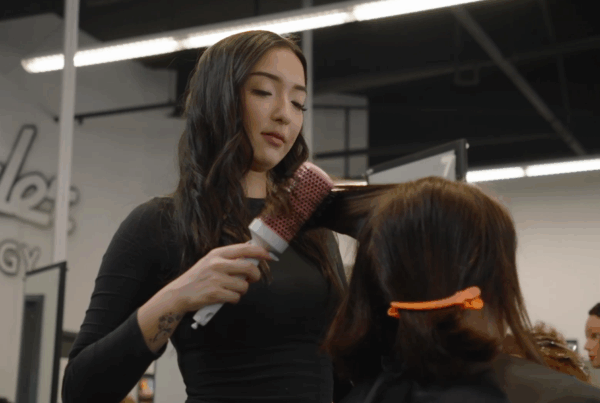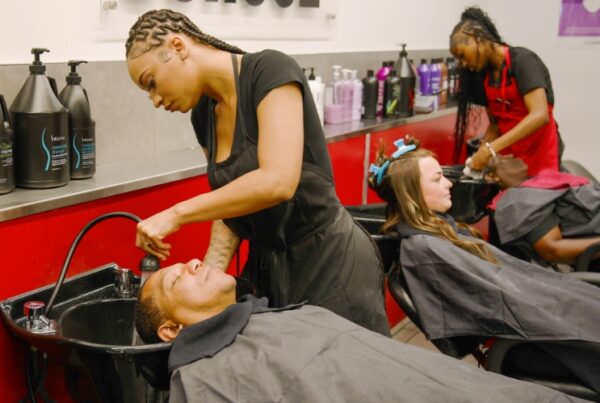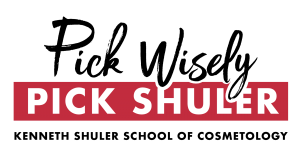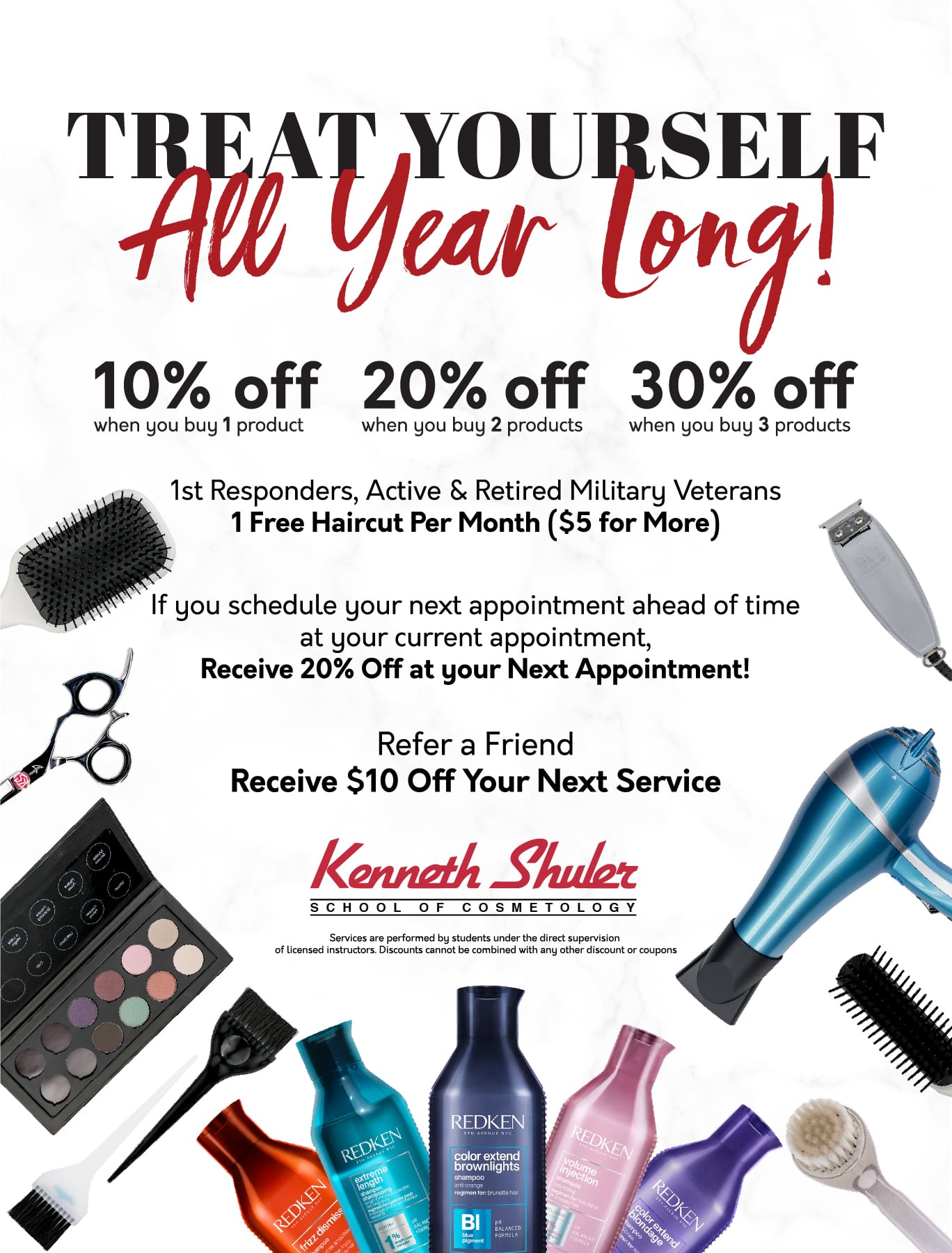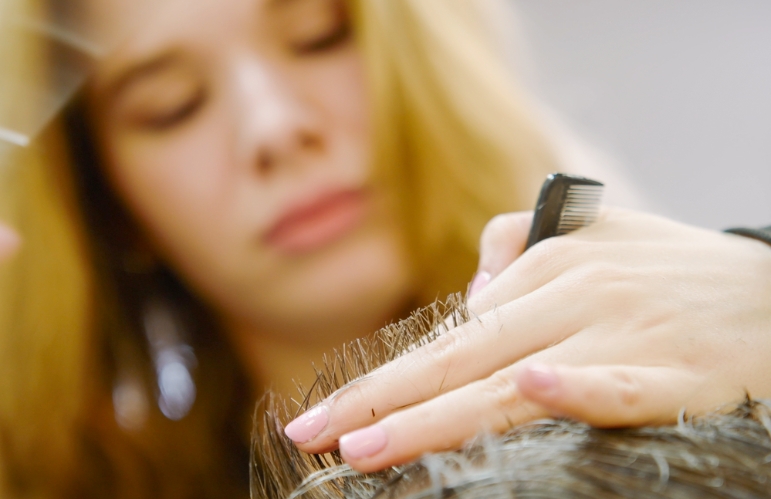
You can love the craft and still feel unsure about the rulebook. Licenses, hours, exams, sanitation, renewals. That maze is real, and it influences your timeline from student to licensed professional.
If you are sizing up a cosmetology school in South Carolina, a critical question to ask is “Where will I learn hair, skin, and nails?” but also consider “Who helps me stay aligned with state rules at every step so I don’t stall out?”
That is the lens we use at Kenneth Shuler School of Cosmetology, because regulations shape the timeline, the training, and the confidence you carry into your first chair.
The hours and the exams
South Carolina requires at least 1,500 hours of board-approved cosmetology education before you can sit for testing. Candidates must pass written and practical exams to qualify for licensure. That is not busywork. Those hours are set so you build consistent habits that prepare you for real-world client scenarios.
How we support that reality: our 1,500-hour cosmetology program is built around real salon-floor practice under licensed instructor supervision, plus board-style practice work so you can approach exam day with confidence.
Students train with professional tools and client services in a teaching salon setting, coached on timing, sanitation, and documentation the way the board expects to see it. All services in our salons and spas are performed by students under the supervision of licensed instructors.
Sanitation is a daily discipline
State rules require infection-control practices and sanitary facilities in schools and salons, with rules and licenses posted where clients can see them.
The standards cover simple, non-negotiable items like hot and cold running water, proper tool storage, and keeping service areas clean.
What that means for you here: we teach sanitation habits from day one and assess them repeatedly.
Your student kit and daily routines are set up to build safe habits you will use for the rest of your career. That training shows up again when you prep for the practical exam and when you start serving the public in our student clinic.
Renewal and continuing education
Licenses do not sit on a shelf forever. South Carolina currently requires four hours of board-approved continuing education during each renewal period.
Topics include board law, client safety, sanitation, and disinfection. Newly licensed cosmetologists are exempt during their first licensing period; after that, continuing education is part of every cycle.
How we keep this straightforward: we point students to the current state requirements and to approved education options so renewal is predictable. Our goal is to help minimize surprises during the renewal process.
Scope of practice and what you can legally offer
Regulations define which services fall within a cosmetologist’s scope and how salons must operate.
Owners and managers are responsible for compliance, and state inspectors can review sanitation, posting of rules, and licensure status. Understanding that framework protects your license and your reputation from day one.
How we prepare you: our curriculum ties hands-on services to state expectations, and our instructors flag where additional credentials or different licenses apply. You learn the service. You also learn where the line is so you do not accidentally cross it.
Turning regulations into momentum
Rules can feel like roadblocks. We treat them like milestones you can plan around.
Structured practice that mirrors test day
Your state board practice work is staged and timed. You rehearse the setup, client protection, sanitation, and teardown sequence until it feels natural. That repetition builds confidence that translates directly to the testing center and your first months behind the chair.
Kits that make sense for training and exams
Students receive a professional kit that includes mannequin heads, implements, and a tablet for hybrid learning. The kit supports daily class work and clinic services, and it is aligned with the skills you are evaluated on in school and on test day. Having the right tools at hand keeps your focus on technique and safety rather than improvising supplies.
Business skills that fit South Carolina’s salon reality
Regulations are only half the picture. Building a book of business, tracking goals, and speaking with clients in a professional way decide how your first months feel.
Every program includes ProsperU business training so you approach the chair with foundational business and client skills, not just a talented technician. This covers client consultations, rebooking, product knowledge, and simple planning habits that help you turn skill into steady work within the bounds of state rules.
Real support people you can walk up to
Every campus has a Financial Aid Coordinator to help you understand how to pay for school, and a Student Success Coach who supports you from the first day through graduation. Financial aid is available to those who qualify. If rules or logistics start to feel heavy, you have staff whose job is to help you sort next steps.
Choosing a cosmetology school in South Carolina that fits how the state works
Regulatory details ripple into everyday campus life. Day and night class options help many students align training with work and family schedules while keeping the structure the board expects.
Career Fairs and Panel of Professionals events connect you with salon owners and educators who understand South Carolina hiring needs and service expectations. Multi-brand exposure across professional lines helps you adapt to the products you are likely to see in local salons.
Those practical touches are small on paper and big in the chair.
How our training aligns with the rulebook
Clinic services under supervision
Serving real clients in the student clinic is where procedure and policy meet the pace of a busy day. Every service is supervised by licensed instructors who check safety steps, tool control, timing, and client care.
You get used to documenting what you did, cleaning how you should, and resetting the station with the next service in mind.
Clear steps from enrollment to application
The path moves in a straight line: enroll, complete the required hours, pass evaluations, sit for written and practical exams, and then apply for licensure.
We map those checkpoints for you at orientation so you can track progress with confidence. If you need extra practice on a skill that shows up on the practical, you can schedule targeted help before you test.
Product and service exposure tied to compliance
Learning a technique is one piece. Knowing the safe service conditions is the other. Instruction links service steps with sanitation and client protection requirements. It becomes automatic to check contraindications, set up clean implements, and maintain a tidy station. Those habits reduce service risk and make inspections less intimidating.
If you plan to open or manage a salon
Regulations also cover owners and managers. Posting licenses, maintaining sanitation logs, and keeping products labeled and secured are part of daily operations.
Business training in our program gives you a baseline for simple systems that help you stay organized, like checklists for opening and closing the floor, a cadence for tool disinfection, and a way to document services and rebooking.
You get a realistic view of how policies look during a busy Saturday, not just on paper.
A note for students who may relocate
Many graduates stay in South Carolina. Some move. If that is you, it helps to compare state scopes of practice and any transfer or endorsement steps before you relocate.
We encourage students to review requirements for the state they are considering so there are no surprises with licensing timelines or additional coursework. Planning ahead keeps your income path steadier during a move.
What to do next
If your plan is to get licensed, stay compliant, and build steady client skills, align your training with the state’s rulebook from the start. Tour a campus, meet the people who will coach you through hours, exams, sanitation routines, and renewal planning, and ask detailed questions about test prep and clinic procedures.
We are ready to walk you through it all and show you exactly how your day-to-day training connects to the standards you will be measured against.
Conclusion
South Carolina’s rules set the guardrails for your first year behind the chair. Pick from cosmetology colleges in South Carolina that teach the craft and the compliance with equal care, and your your transition into the field can feel more supported.
Want to see how our program lines up with the state requirements and the skills salons expect right now? Learn more about our cosmetology program.
Education does not guarantee licensure or employment. Licensure requirements vary by state. KSSC does not guarantee job placement or salary. Kenneth Shuler School of Cosmetology is accredited by the National Accrediting Commission of Career Arts & Sciences (NACCAS).

